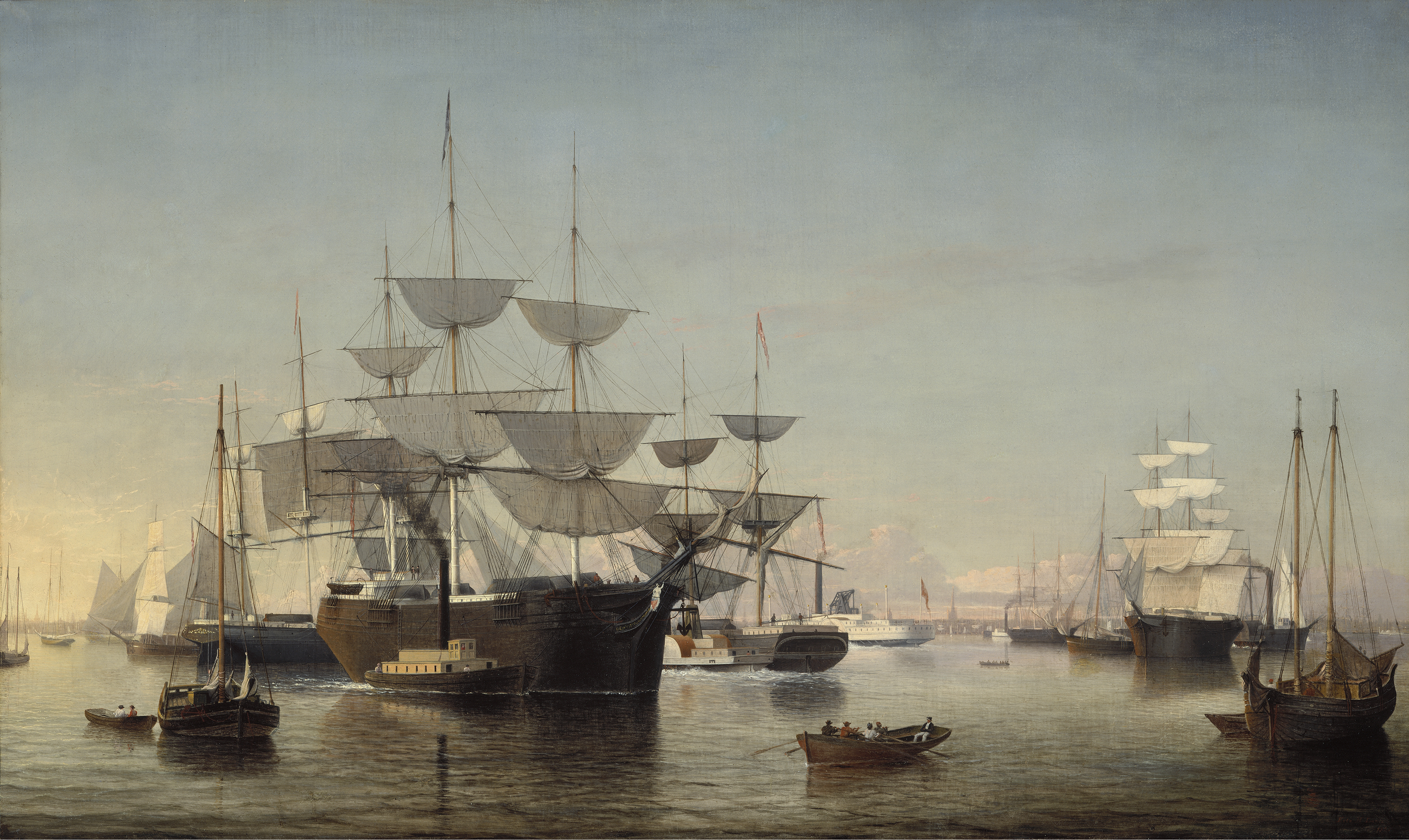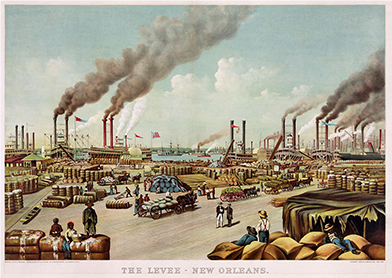To: DiogenesLamp
The topic here is the myth that Northern tariffs drove the Confederate states to secession, thus igniting the American Civil War beginning with the attack on the Federal installation at Ft Sumter in 1861. I have shown how this could not be the case, because in fact tariffs had been lowered before the 1860 election. Indeed, the Tariff of 1857 had been written by Southern interests. Tariffs were only raised later, after the election, because the secessionist senators had withdrawn from Congress, otherwise the legislation would have been voted down.
You are moving the goalposts by switching the conversation to imports. I know you want to repeat the myth of King Cotton, and how the Southern economy drove exports. You want to restate the fallacy of the War Northern of Aggression, when in fact the South started the war. You want to blame Lincoln for waging war to protect the profits Northern industry made off Southern cotton, but that idea also defies logic.
The issue of GNP is relevant to the argument that export revenues were vital to the nation’s economy. The numbers show that exports were only one third of the total profits generated in the country at the time. Furthermore, Southen agriculture was not the totality of exports. At most it accounted for 60-65%, not three quarters. In the overall picture, the ratio of exports to GNP was about 9% in 1859.
https://www.dartmouth.edu/~dirwin/docs/exporttax.pdf
My information on the percentage of Southern production in total exports comes from various sources. Wikipedia states that cotton, the vast majority of Southern exports, were 60% of total exports in 1860.
https://en.wikipedia.org/wiki/King_Cotton
The Federal Reserve Bulletin of 1923 states that cotton exports accounted for 53% of all exports in 1850.
https://fraser.stlouisfed.org/files/docs/publications/FRB/pages/1920-1924/26396_1920-1924.pdf
The New York Times states that ALL American cotton exports, of which only 80% came from the South, were 60% of total exports in 1860.
https://opinionator.blogs.nytimes.com/2011/03/26/when-cotton-was-king/
Another source puts Southern cotton at 57% of all American exports in 1860.
http://inside.sfuhs.org/dept/history/US_History_reader/Chapter5/southernecon.html
I would challenge you to produce any legitimate source to prove that Southern exports amounted to 75-80% of American exports in the antebellum period. That was never the case.
Nobel Prize-winning economist, Douglass C. North, said that cotton Cotton accounted for over half of all American exports during the first half of the 19th century, not three quarters.
http://mshistorynow.mdah.state.ms.us/articles/161/cotton-in-a-global-economy-mississippi-1800-1860
Of course even IF your facts were correct, and they are NOT, your reasoning makes no sense. If Southern production was so vital to Northern money interests then there was every reason to accommodate the demands of slave states. In reality every effort to do so had been attempted. That was aha the Missouri Compromise was all about.
Indeed, industrialists in the North opposed war, and wanted to appease slave interests to keep business going as usual. The mayor of New York City even proposed its own secession, but Unionist sympathies overwhelmed that idea. It was only after the war started thats Northern captains of industry joined ranks with Uncle Sam.
The CSA, had it been formed unchallenged, would have hardly affected the cotton trade, because those rich Southern planation owners would still need the rail and shipping assets of the USA to export their cotton. The whole idea that tariffs led to the war is ludicrous, and disproved by the statements of the Confederates themselves.
To: SoCal Pubbie; BroJoeK
Great research! I doubt you’ll ever convince Diogenes, though. Too much in love with his own idea.
126 posted on
04/12/2018 4:03:19 PM PDT by
x
To: SoCal Pubbie
You are moving the goalposts by switching the conversation to imports. No, you are moving the goal posts by refusing to show who was producing what revenue stream. Why are you so afraid of this? I keep trying to make you go down this path, and you seize upon every straw you can find to avoid looking at it.
This makes me think you see quite clearly where this is going to go, and you simply do not want to go there. You are afraid of the truth. That's why you bring up "Tariffs", or "Slavery", or "GNP" instead of looking at revenue streams and loss of trade.
Wikipedia states that cotton, the vast majority of Southern exports, were 60% of total exports in 1860.
So i've got you to admit to 60% of the total. (and just for "cotton". )
The other exports from the South contributed as well. Tobacco made money. So did rice, sugar, molasses and hemp.

If Southern production was so vital to Northern money interests then there was every reason to accommodate the demands of slave states.
So an avowedly anti-slavery President, endorsing the continuation of slavery, and to make permanent slavery in the United States, would be evidence that they considered this Southern Production so vital that they would do virtually anything to keep the money flowing?
Beware. This articles is written by a Black, Boston College law professor, so you know it's just full of bias in favor of Southern slavery.
http://cognoscenti.legacy.wbur.org/2013/02/18/the-other-13th-richard-albert
Indeed, industrialists in the North opposed war, and wanted to appease slave interests to keep business going as usual.
Because they were making a *LOT* of money from the deal. Remember this map?

It was only after the war started thats Northern captains of industry joined ranks with Uncle Sam.
If things were allowed to stand as they were, that money stream would be gone to them. If they could force the South back into the Union, that money stream would return. Everyone expected a quick fight, and then the South would be back to producing that money. It didn't work out that way.
133 posted on
04/13/2018 6:49:59 AM PDT by
DiogenesLamp
("of parents owing allegiance to no other sovereignty.")
To: SoCal Pubbie; DiogenesLamp; x; FLT-bird; Uncle Sham
SoCal Pubbie:
"Southen agriculture was not the totality of exports.
At most it accounted for 60-65%, not three quarters." Not even that much, see my post here.
In 1861 when Confederate exports were deleted from Union accounting, total US exports fell only 35%, not 50%, not 65% and certainly not 75% to 90% as often claimed.
Yes, cotton exports did fall 80%, but no other "Southern product" came anywhere near that.
Indeed, alleged "Southern products" like rosin, turpentine and hops rose by orders of magnitude from 1860 to 1861.
Clearly they were mislabeled as "Southern products".
SoCal Pubbie: "The New York Times states that ALL American cotton exports, of which only 80% came from the South, were 60% of total exports in 1860."
That depends on how you count & what you include.
This source (pg 605) shows total 1860 US exports of $400 million, including $66 million in specie.
This source shows total 1860 cotton exports as $191 million plus another $16 million in manufactured cotton products.
However, those $16 million should be included in Northern exports and they are not.
So a rough distribution of value added would put total cotton exports around $200 million or 50% of US exports.
Nothing else in the category of "Southern products" comes anywhere close to being as genuinely "Southern" or important to total US exports -- nothing, not tobacco, not rice, not turpentine or hops... only cotton, nothing else.
SoCal Pubbie: "The mayor of New York City even proposed its own secession, but Unionist sympathies overwhelmed that idea.
It was only after the war started thats Northern captains of industry joined ranks with Uncle Sam."
An important point which DiogenesLamp twists into saying that fear of losing their economic base (cotton, etc.) drove "New York elites" into pushing Lincoln towards war.
In historical fact, economics were secondary to the issue of Confederate seizures by force of Federal properties, especially their military assault on Union Fort Sumter.
Which port was more important to cotton, New York or New Orleans?
New York harbor, c.1855:

New Orleans harbor, where half of US cotton shipped:

163 posted on
04/15/2018 9:56:06 AM PDT by
BroJoeK
(a little historical perspective...)
FreeRepublic.com is powered by software copyright 2000-2008 John Robinson


